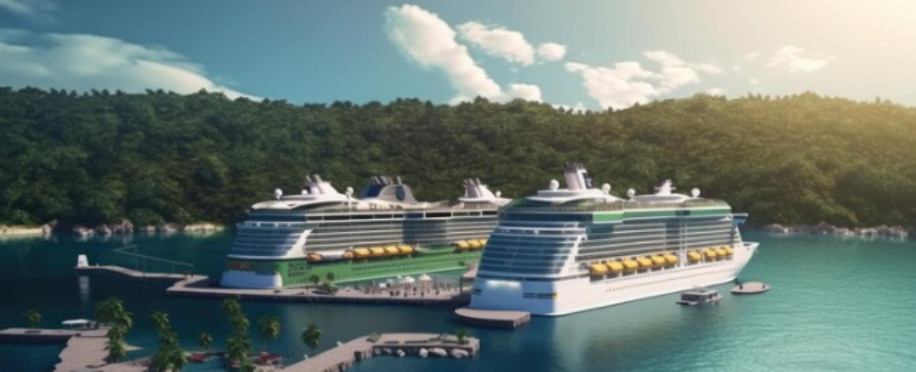Copyright © 2025 lmitac.com All Rights Reserved. Contact - Terms and Conditions - Privacy Policy - Quality Policy - Become an instructor - Vacancies - Sitemap
London Maritime Academy is a trade name for London Premier Groupversion: 2.9.0
London Maritime Academy is a trade name for London Premier Group

Posted on : 1/8/2024, 11:56:40 PM
The marine cruise industry continues to grow amazingly, with more people interested in these cruises; however, effective cruise management is the only way to meet all these requirements.
Additionally, the concept of cruise ship management is to arrange all the cruise operations to offer the best services for the passengers and include complete cruise property management.
In this article, we will share complete information about cruise management, how to become a cruise manager, and the most significant trends and international challenges that could face companies in maritime cruise management.
The cruise ship management term refers to all the operations, services, aspects, and management jobs of the marine cruise industry, including planning, organising, and executing to ensure a smooth and enjoyable experience for all passengers.
Moreover, some vessels may include designed apartment booking with maintenance, comprehensive services, and entertainment programs.
Additionally, the company requires the senior cruise manager roles to facilitate any management plan and make it work seamlessly without impacting the other company's holdings.
In other words, cruise management combines a wide range of responsibilities to deliver a safe, enjoyable, and memorable fleet experience for cruise passengers while ensuring efficient hospitality, leisure service, and the company's sustainable operation of the cruise lines.
A cruise manager in a company is the trained director of a cruise's day-to-day operations, including managing resources, coordinating passenger activities, and even the included ground activities to ensure positive guest reviews.
Moreover, the manager job description includes applying best practices for ship finance and accounting management and facilitating collaboration among different departments to maintain safety, security, and high-quality hospitality on board.
The international online maritime courses are essential for people wanting to get a cruise ships manager degree for the following reasons:
Maritime courses provide essential knowledge for ship managers on tourism navigation, operations, hospitality, and maritime regulations.
A cruise manager will know how to manage all the basic and required safety protocols, emergency response procedures, and crisis management for all leisure cruise ship operations.
There are cruise management international maritime laws and regulations that ship managers need to know and follow to avoid legal issues and maintain the cruise's positive reputation.
In the world of cruise ship operations and services, there are some trends that you need to follow to manage and meet your customers' expectations in 2024:
More travellers are seeking maritime cruise experiences with a high appreciation of the convenience and variety of cruise journeys, leading to more and more diverse passengers.
Luxury cruises with high-end accommodations, gourmet dining, and exclusive shore excursions are answering the demand for premium amenities, targeting clients seeking luxury and personalised service.
Ship cruise fans are increasingly seeking unique and off-the-beaten-path destinations, driving a trend toward providing more exotic and less traditional cruise programs.
Integrating digital technology and software in the tourism business offers great technical opportunities for cruise management with onboard IT solutions that provide passengers seamless digital experiences, from mobile app functionalities to smart room controls, sharing a royal experience.
With growing awareness of environmental issues, the cruise ship industry is adopting an eco-friendly practice to align with the ever-increasing demand for environmentally conscious travel options.
This cruise management focus improves your company's public image and presents your office as a cruise provider with an eco-friendly vision.
Despite all the fantastic trends and potentials of the cruise management and maritime industry, there are still some executive challenges that need to be solved effectively:
Managing escalating fuel expenses poses a challenge in cruise management, requiring strategic fuel efficiency measures to control costs while staying as a real competitive agency and following environmental regulations.
You must consider economic uncertainties, as they impact consumer spending on luxury travel, challenging cruise management to browse competitive pricing strategies based on the economic conditions.
Cruise management must apply sustainable practices to address concerns about emissions, waste disposal, and ecological impact to align with international environmental awareness while catering for a successful adventure.
Ensuring passenger and crew safety requires constant overview and checks while implementing sustained safety protocols and emergency response plans at each event.
Unpredictable weather and natural disasters cause operational challenges, necessitating effective planning and communication strategies to ensure personal and passenger safety during challenging conditions without bad events.
Thus, collecting data about the weather in different targeted towns like Miami, Norway, Baltimore, and Cyprus must be a high priority for cruise officers to guarantee the safety of the cruise followers.
Cruise management, whether for tourism, travelling, or solo, is highly in demand to facilitate all the efforts and ensure revenue growth.
Thus, implement the best cruise management strategy that covers all aspects of your operations and services while keeping high-end hospitality aboard all the time.
Port State Control Inspections